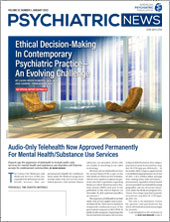Cognitive impairment associated with COVID-19 may linger for seven months or longer, especially among patients who were hospitalized or visited the emergency department because of the virus, a study in JAMA Network Open has found.
Jacqueline H. Becker, Ph.D., a clinical neuropsychologist and researcher in the Division of General Internal Medicine at the Icahn School of Medicine at Mount Sinai, and colleagues analyzed data from 740 adult patients who were treated for COVID-19 through the Mount Sinai Health System from April 2020 through May 2021. The patients had a mean age of 49 and a mean time from diagnosis of 7.6 months. The researchers assessed the patients’ attention; working memory; processing speed; executive functioning; language; and memory encoding, recall, and recognition via standard neuropsychological tests.
The researchers found that 24% of patients had deficits in memory encoding, 23% had deficits in memory recall, 20% had deficits in category fluency, 18% had deficits in processing speed, 16% had deficits in executive functioning, and 15% had deficits in phonemic fluency.
Compared with outpatients, patients who were hospitalized with COVID-19 had 3 times the odds of impaired category fluency, 2.8 times the odds of impaired attention, 2.3 times the odds of impaired memory encoding, 2.2 times the odds of impaired memory recall, and 1.8 times the odds of impaired executive functioning.
“It’s not entirely surprising that hospitalized patients would have some kind of cognitive impairment after a viral illness in general, but what was surprising was the relatively young age of the patients and that this continued for over seven months,” Becker told Psychiatric News.
Patients treated in the emergency department had 1.8 times the odds of impaired category fluency and 1.7 times the odds of impaired memory encoding compared with outpatients.
Although the study was not designed to tease out the reasons why patients with more severe COVID-19 were more likely to have cognitive impairment, Becker said that persistent and chronically elevated inflammatory markers may play a role.
Overall, the results hint at long-term challenges for society, Becker said.
“It is very concerning given the impairments [COVID-19] may cause not just in cognitive domains, but in other domains, such as occupational and functional outcomes,” Becker said. She explained that cognitive impairments associated with COVID-19 infection may affect patients’ productivity at work and contribute to the overall national economic burden.
“Early identification of patients with cognitive impairments have implications for resource allocation [to support these patients] and offers opportunities for intervention,” Becker added. “Although there have been no studies specifically about [cognitive rehabilitation in] COVID, by extrapolating from what we know of brain injuries, cognitive rehabilitation can offer helpful strategies.”
The researchers reported no outside funding for their study. ■
“Assessment of Cognitive Function in Patients After COVID-19 Infection” is posted
here.

